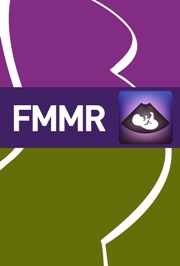No CrossRef data available.
Article contents
A ROLE FOR REGULATORY T CELLS IN MATERNO-FETAL TOLERANCE?
Published online by Cambridge University Press: 13 January 2005
Extract
Since the discovery that major histocompatibility complex (MHC) proteins provide a barrier to tissue transplantation between individuals it has been a paradox that, during pregnancy, the mother is able to retain a fetus that expresses MHC antigens from the father without rejection. The nature of this materno-fetal tolerance is not well understood and may involve multiple mechanisms. However since a major mechanism of histo-incompatible tissue rejection involves T lymphocytes, it seems plausible that controlling T cell responses is likely to be important. Recently, there has been considerable research activity focusing on the role of a sub-set of CD4+ T cells that express the interleukin-2 receptor chain CD25+. These CD4+CD25+ cells are termed regulatory T cells (Treg) based on their ability to prevent autoimmune tissue damage. In this review we discuss recent evidence that may link Treg to materno-fetal tolerance during pregnancy.
- Type
- Research Article
- Information
- Copyright
- © 2004 Cambridge University Press




